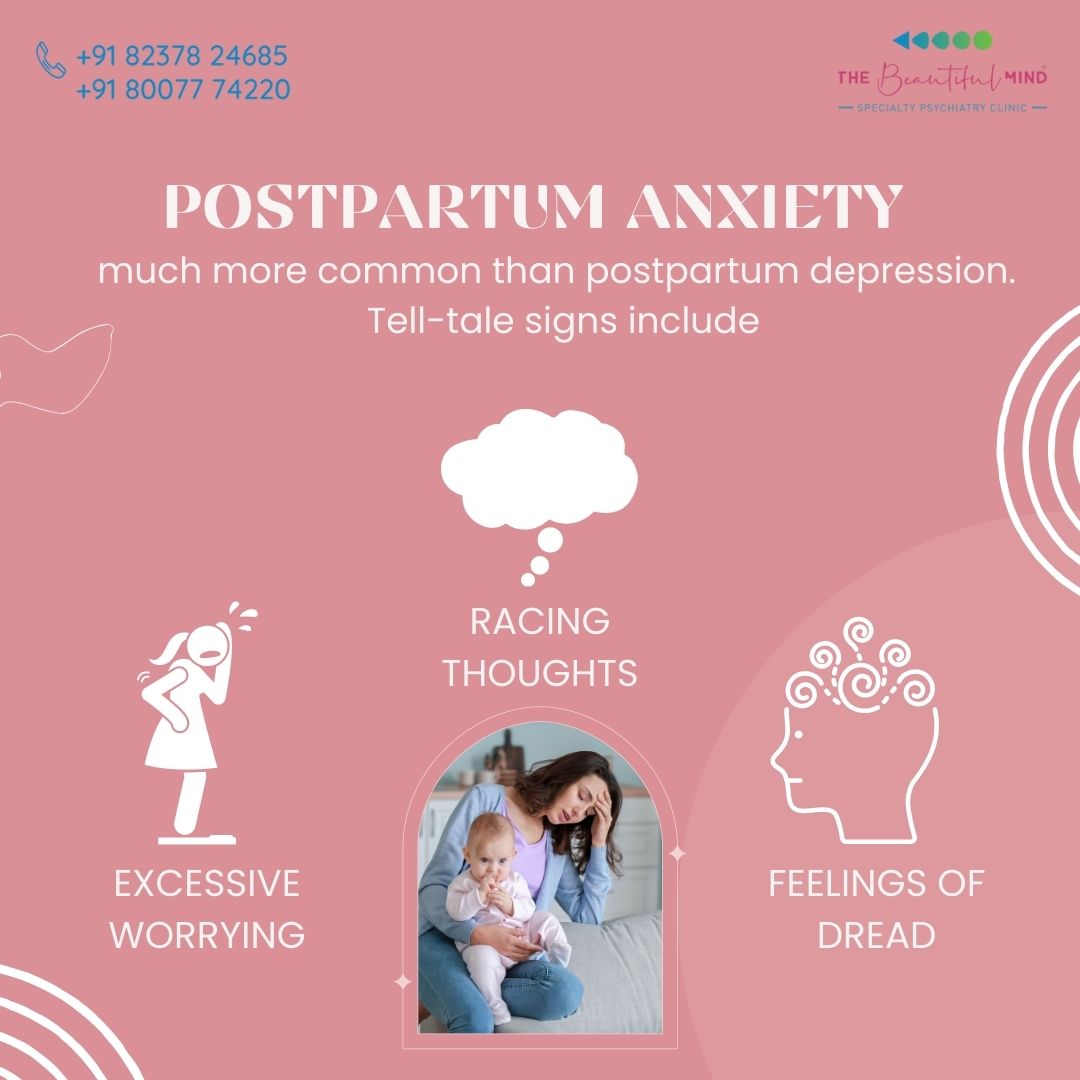
The wait is finally over: after 40 weeks of medical appointments, nursery planning, and anticipation, your baby has finally arrived. She is perfect in your eyes, healthy and adorable. Yet over the next few weeks, your initial joy is replaced by all-consuming worries: Is she feeding enough? Why is she crying so often? Is something medically wrong with her? These worries are constant during the day and keep you up at night. You feel tense and irritable, your heart races, and you feel panicky. Your family members start to express their concern —not just about the baby, but about you. You wonder whether your anxiety is normal.
Postpartum anxiety is even more common than postpartum depression, with some research suggesting that it affects 20-25 percent of new mothers. Postpartum anxiety often occurs alongside postpartum depression. It can occur anytime within the first year after giving birth.
Everyone experiences anxiety differently. But people with postpartum anxiety experience thoughts that are usually:
- Uncontrollable
- Racing
- Consuming
- Disrupting
- Overwhelming
- Recurrent
- Irrational (not logical or realistic)
- Frightening
These uncontrollable, consuming thoughts tend to center on a few major areas of worry, such as:
- fears about the baby’s and one’s own health
- fears about a parent or partner becoming ill or dying
- a sense that something bad will happen
- irrational obsessions or fears
- blaming oneself excessively when something goes wrong or feeling excessively guilty
Postpartum anxiety can also cause physical symptoms, including:
- unexplained exhaustion
- trouble sleeping
- trouble concentrating
- increased irritability
- muscle tension
- feeling on-edge, restless, or wound-up
- a rapid heartbeat
- feeling panicky for no clear reason
Postpartum anxiety may make it harder for a person to bond with their baby. It may also negatively impact a baby’s mental and physical development. Left untreated, postpartum anxiety can also lead to serious negative consequences such as infant neglect and, in extreme cases, infant death.
Some factors that increase the risk of developing postpartum anxiety are not preventable, such as having other anxiety disorders, depression, or the “baby blues.” Few of the other risk factors potentially linked with postpartum anxiety may be preventable to some extent.
Potential risk factors of postpartum anxiety include:
- experiencing many stressful life events or a lot of stress during pregnancy
- low levels of social support
- problems adjusting to life/relationships after childbirth
- having previous unwanted pregnancies or surgical abortions
- taking certain approaches to cope with problems or major life changes
- increased fear of childbirth, and fear for the life of the fetus or oneself during delivery
- worry about lack of control during the labor process
- lack of confidence in one’s ability to handle delivery, or in the medical staff performing or assisting with the delivery
- increased worries about parenting skills or ability
- lack of sleep
- changes at work
Based on the risk factors listed above, tips for helping prevent postpartum anxiety include:
- managing or reducing stress during pregnancy and afterward
- building strong social support systems of friends and family
- learning ways to cope with stress and life changes
- talking to doctors and other medical staff that will be assisting with labor and delivery
- about ways to reduce concerns and gain more confidence and control
- getting enough sleep and exercise